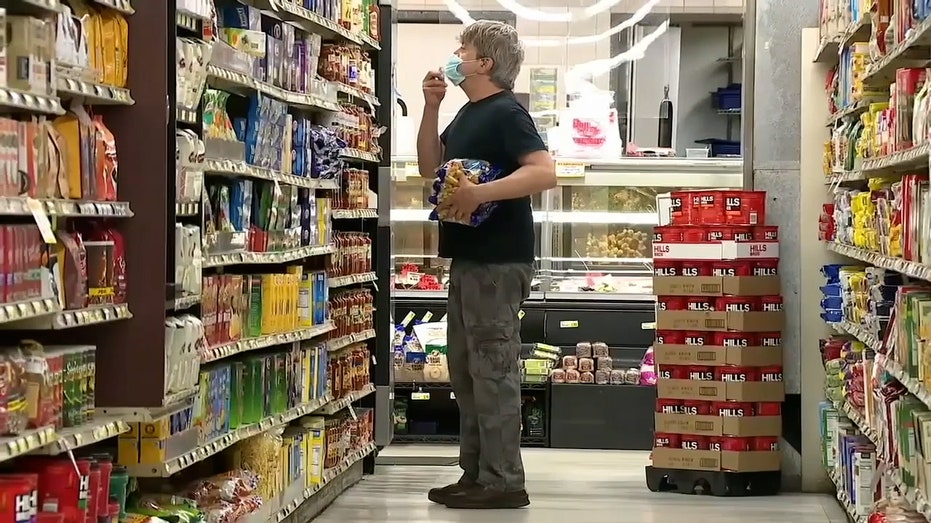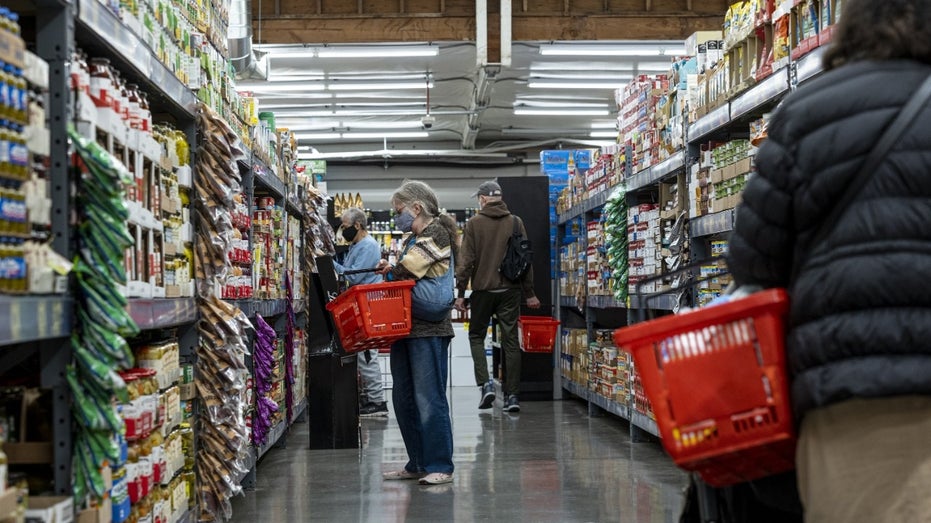Inflation, stock shortages: How cash-strapped consumers can navigate grocery shopping
Out-of-stock rates surged upward of 15% during the COVID-19 pandemic
Shoppers are facing significant challenges at the supermarket as widespread supply chain shortages have led to higher than normal out-of-stock rates and inflation near its highest level in four decades steadily pushes up prices.
As a result of supply chain issues throughout the coronavirus pandemic, out-of-stock rates surged upward of 15% compared to historical ranges of 5% to 10%, according to McKinsey & Company.
The issues stemmed from a variety of factors including labor shortages, bottlenecks at ports, labor shortages and unanticipated spikes in consumer demand, the consulting firm said in a recent report.
DEMAND FOR GROCERY DELIVERY COOLS AS FOOD COSTS RISE
Meanwhile, inflation has risen at an uncomfortable pace, notching a 40-year high in May and in June, squeezing consumer budgets like never before. Although consumers got a bit of reprieve in July, overall inflation is still running at close to its highest level in four decades.
To help, the chief executive of retail tech company Grocery Shopii, Katie Hotze, offered some hacks consumers can utilize to better navigate the new grocery shopping environment.

Shoppers shop at a grocery store in Glenview, Ill., Monday, July 4, 2022. (AP Photo/Nam Y. Huh / AP Images)
For one, bouncing around to different stores "dilutes the savings opportunity for the shopper," Hotze told FOX Business.
Certain stores have loyalty programs and mobile apps to help customers maximize savings each visit. In many cases, customers can earn rewards points each shopping trip, which can add up to rewards over time like discounts on gas or food.
SOARING INFLATION DRIVES MORE AMERICANS TO LIVE PAYCHECK TO PAYCHECK DESPITE 5.1% INCREASE IN WAGES
Hotze says consumer should find the store that fills their needs to the greatest extent and then download the mobile app and take time to learn and take advantage of their savings program.

A growing number of seniors have now turned to food assistance programs according to the Senior Citizens League. (Fox News / Fox News)
"When shopping the same store to increase your couponing and overall savings opportunity, you’ll find that the savings for your key items will come to you," she said. "All that data the store captures on your preferences will work in your favor as they know your most essential products and will search for ways to increase your purchase volume when they have it in stock."
Meal planning is also another tactic that can help consumers reduce over spending and wasting food, especially at a time when food prices are already surging.

Shoppers inside a grocery store in San Francisco, Calif., on Monday, May 2, 2022. (David Paul Morris/Bloomberg via Getty Images / Getty Images)
In July food prices outpaced the overall consumer price index again, rising 10.9% compared to a year earlier. The food at home category, which is food from grocery stores, surged 13.1%.
CLICK HERE TO READ MORE ON FOX BUSINESS
"Meal planning reduces impulse purchases and decreases the opportunity for food waste as you’re taking the time to allocate each item or remove it from the list," she added.
Basic panty items can also be hard to come by with shortages, so it's best to plan ahead, according to Hotze. The chief executive recommends stocking up on shelf-items consumers use the most when the store has volume.
Stock-up trips will also help consumers reduce the number of trips they take and ultimately, save on gas, Saffron Road Foods CEO Adnan Durrani told FOX Business.
| Ticker | Security | Last | Change | Change % |
|---|---|---|---|---|
| ACI | ALBERTSONS COS INC | 18.16 | +0.07 | +0.39% |
| KR | THE KROGER CO. | 70.10 | +2.60 | +3.85% |
| IMKTA | INGLES MARKETS CL A | 86.28 | +1.38 | +1.63% |
| WMK | WEIS MARKETS | 73.88 | +0.20 | +0.27% |
GET FOX BUSINESS ON THE GO BY CLICKING HERE
Gas prices have fallen from record highs seen in June, but they are still elevated. The national average for a gallon of regular gasoline is $3.94, according to AAA.
Durrani also recommends that consumers watch out for brands that are tricking consumers by reducing package sizes or "dumbing down ingredients to save costs."
The Associated Press contributed to this report.





















